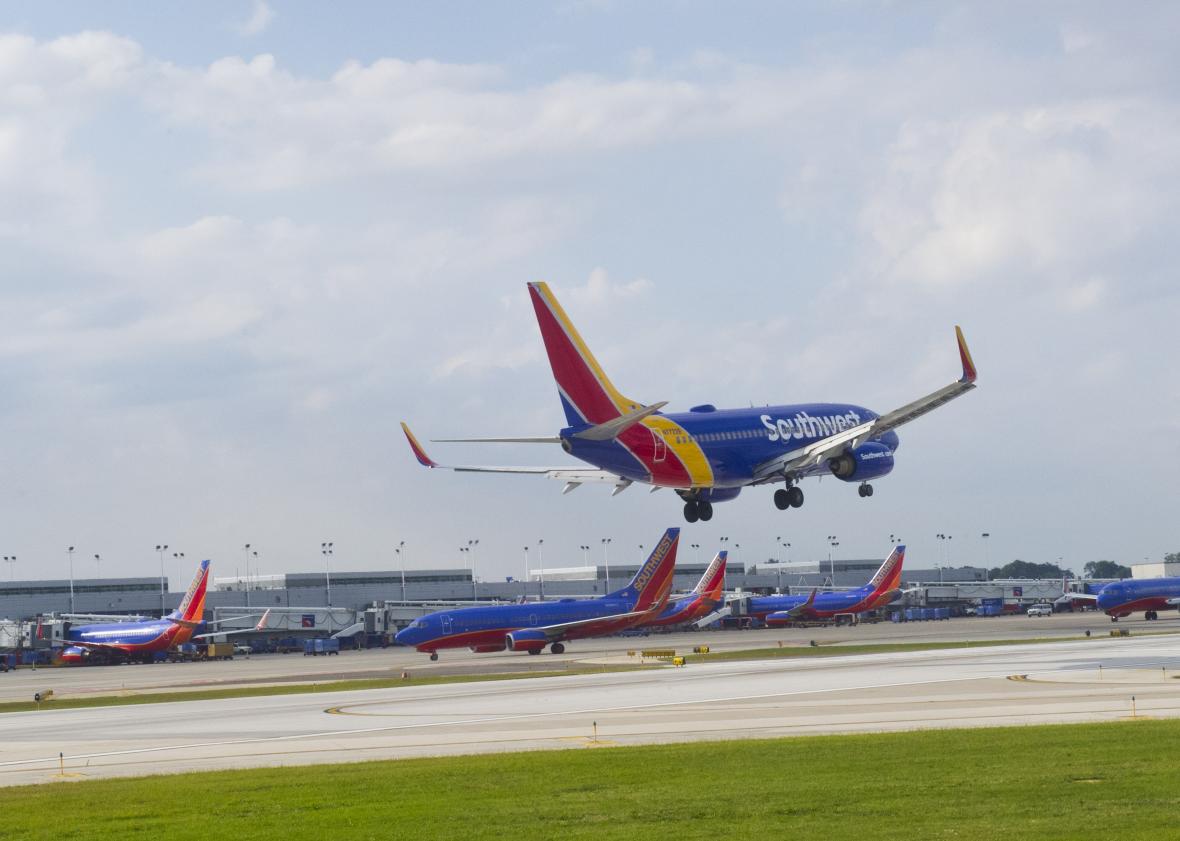If you speak Arabic, best keep your mouth shut when you’re boarding a plane in the United States. That seems to be the lesson from the humiliating experience that 26-year-old UC–Berkeley senior Khairuldeen Makhzoomi lived through when he was supposed to fly from Los Angeles to Oakland earlier this month.* Makhzoomi, an Iraqi refugee, was speaking to his uncle in Baghdad before the plane took off. And it seems the common Arabic expression “inshallah,” meaning “God willing,” set off alarm bells inside the head of a passenger. Makhzoomi noticed the female passenger was staring at him when he hung up and then she got up and left her seat.
“She kept staring at me and I didn’t know what was wrong,” he told the Daily Californian, a student-run newspaper at UC–Berkeley. “Then I realized what was happening and I just was thinking ‘I hope she’s not reporting me.’ ” Makhzoomi was quickly pulled off the plane. The passenger apparently said she had heard the word shahid, which means martyr. Makhzoomi denied that was the case.
“I told them, ‘This is what Islamophobia looks like,’ ” he told the San Francisco Chronicle. “And that’s when they said I could not get on the plane, and they called the FBI.”
By the time the student was taken back to the gate, there were police dogs and security officers waiting for him. Makhzoomi says authorities repeatedly questioned him and one officer even allegedly publicly searched his genital area. “That is when I couldn’t handle it and my eyes began to water,” he said. “The way they searched me and the dogs, the officers, people were watching me and the humiliation made me so afraid.” Hours later, authorities allowed him to leave, but Southwest refused to fly him and refunded his ticket.
Southwest confirmed it “decided to investigate potentially threatening comments made onboard our aircraft” and “made the decision to deny boarding to this customer.” The airline released a statement:
Prior to gate departure of Flight 4260, our Flight Crew decided to investigate potentially threatening comments made onboard our aircraft. Based upon the reported comments and further discussion, our Flight Crew made the decision to deny boarding to this Customer. We understand local law enforcement spoke with that Passenger at a later time. To respect the privacy of those involved, our policy is to not publicly share specifics of the event, as we try to work with individual passengers to address concerns or feedback regarding their experience. We regret any less than positive experience onboard our aircraft.
Southwest Employees welcome onboard hundreds of millions of Customers each year. We wouldn’t remove passengers from flights without a collaborative decision rooted in established procedures. We aim to safely transport every Customer while maintaining the comfort of all. Southwest neither condones nor tolerates discrimination of any kind.
Islamic leaders immediately expressed concern this was another example of how profiling is becoming more rampant. “We’re concerned that this is part of a trend of Muslims being profiled and their right to travel being impacted,” Zahra Billoo, executive director of the San Francisco chapter of the Council on American-Islamic Relations, said.
*Correction, April 18, 2016: This post originally misspelled Oakland, California.
